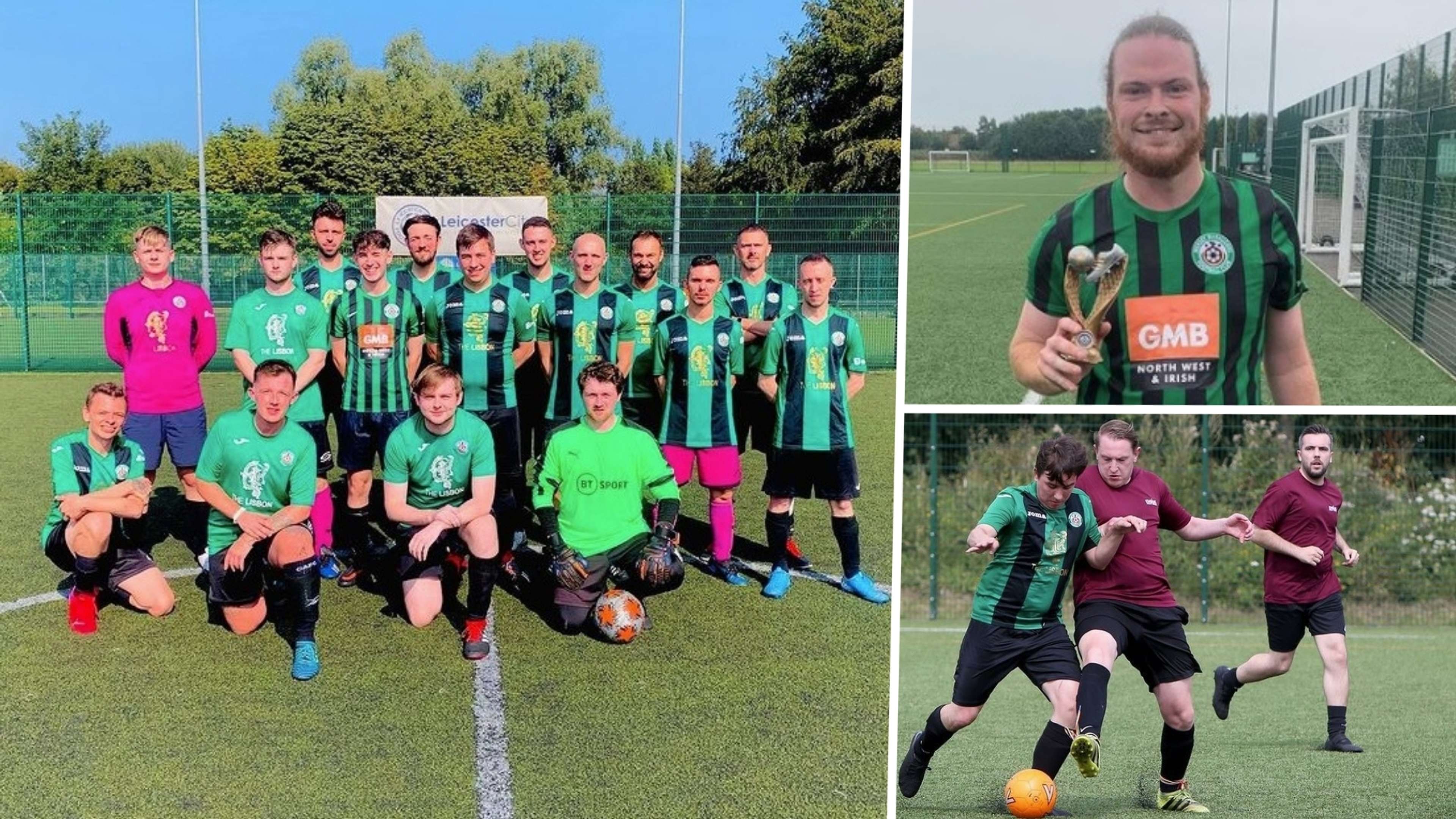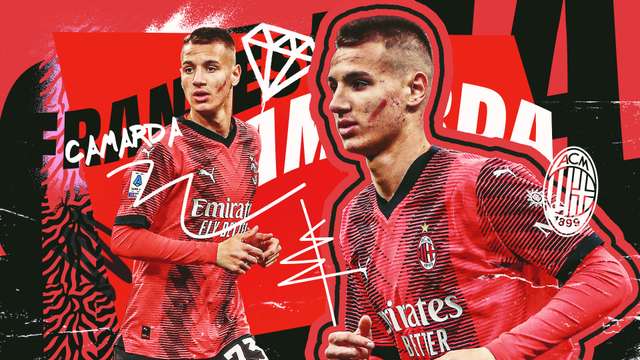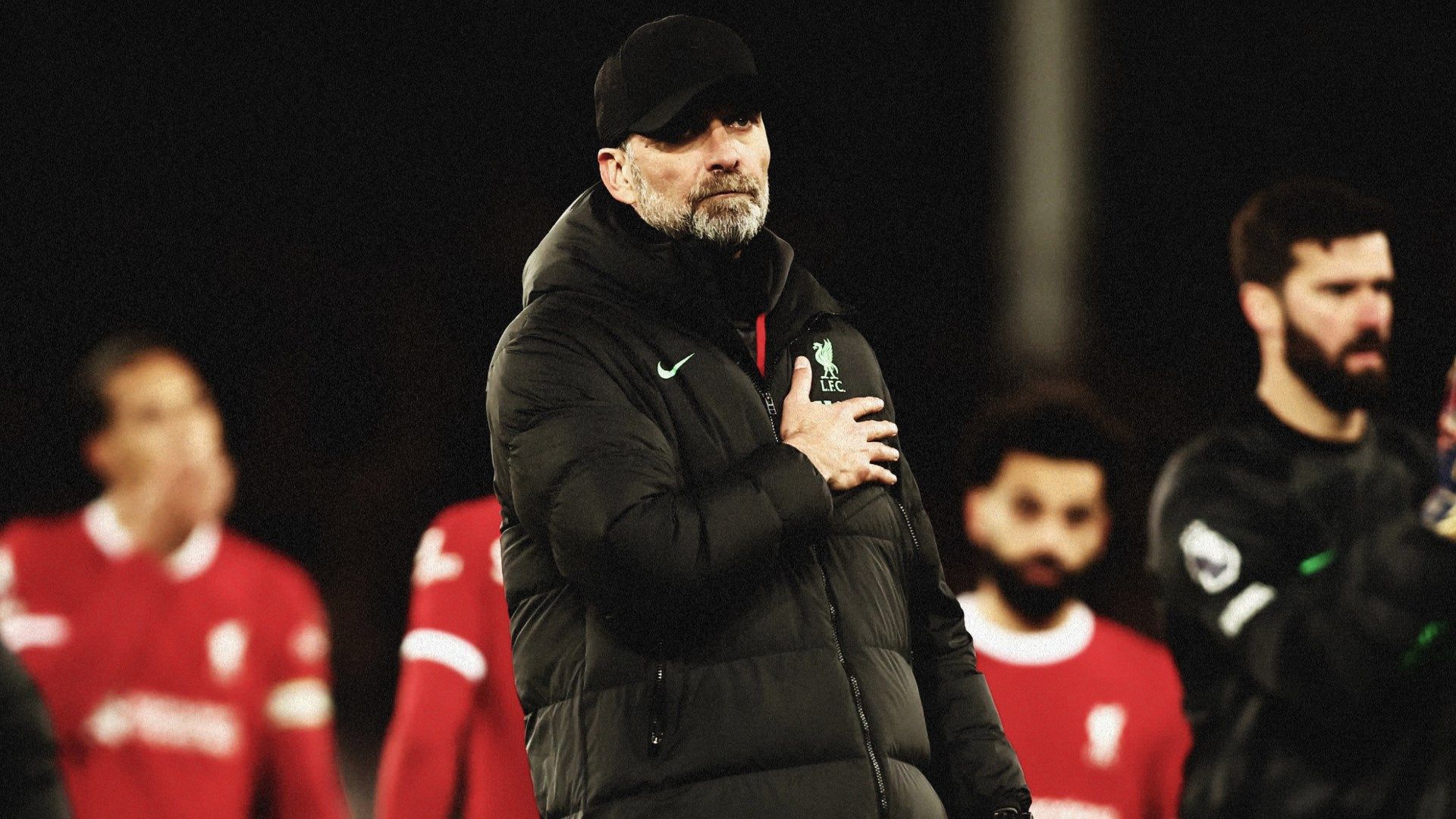“When I first started playing, I was one of the youngsters. Now, I look around and feel like an old man!”
David Johnson smiles as he surveys the scene. It’s a Tuesday night, cold, and we are at Archbishop Blanch school in Wavertree, a couple of miles east of Liverpool city centre, watching a group of around 40 men chasing a football around a hockey pitch.
“Yeah, somebody messed up with the booking!” laughs Chase Newton. “We usually have proper pitch markings, at least!”
Welcome to training with the Mersey Marauders.
Officially formed in 2008, although they had been going for three years prior to that as a five-a-side team, the Marauders are Merseyside’s award-winning LGBT+ football club. Their aim is to offer LGBT+ people within Liverpool and its surrounding areas the opportunity to play football in a supportive and inclusive environment.
Next Match
Johnson, who has played for the club for more than a decade, is the club chairman and Newton is the secretary, looking after the admin, social media and sponsorship. “The sh*t jobs nobody else wants!” he jokes.
The Marauders play in the Gay Football Supporters Network (GFSN) league, which is the world’s only national league aimed at the LGBT+ community.
They travel up and down the UK, taking on teams from places like London, Glasgow, Newcastle, Bristol, Leicester and Brighton. A few days after GOAL drops in to watch training, they will welcome Cardiff Dragons to Merseyside.
“Hopefully, the pitch will be better than this one!” laughs Newton. It must have been; Marauders won the game 8-0.
The idea for the club came from former player Steve Hess, who played for the famous LGBT+ team Stonewall FC in London.
Stonewall were the first club of its kind to achieve FA Chartered Standard status, and were instrumental in the ‘Rainbow Laces’ campaign which we have seen across English professional football in recent years.
“Steve was from Birkenhead originally,” Newton tells GOAL. “For him, Stonewall was a place for gay people to feel comfortable playing football and when he returned to Liverpool, he realised there was nothing like that up here.
“It took a long time for the club to take off. For the first five or six years, it was a real struggle. I remember some of the early games, scraping together 11 players on a waterlogged pitch in Mossley Hill and getting beat six or seven-nil.
“We were the only team of its kind around at the time, and Liverpool’s gay scene is not as big as, say, Manchester or London. And there are so many football clubs, so it was hard at first to get people to come down. It’s only in the last three or four years we’ve had a real surge of players.”
Success came, though. Marauders won the GFSN Division Three title in 2013 and followed that up by winning Division Two the following year. They have twice won the GFSN Cup, and twice been victorious in the GFSN Summer Tournament, most recently in 2019 when Liverpool hosted the event.
“That was probably our proudest moment as a club,” says Newton. “We organised the whole event, more than 20 teams, and we won the whole thing. It was a really great weekend.”
Johnson smiles when he discusses the “internal conversations” the club faces; does it matter to them to win and be successful, or is it about friendship, inclusivity and standing for something?
“The club has gone through different eras,” he says. “At one point, it sort of didn’t matter how integrated we were; it was just ‘If you’re a good player, you’re starting!’
“Nowadays, I feel like we are going in a better direction. The committee wants us to be a club for all players, who come to training each week, get together at The Lisbon afterwards, and really buy into what the club is about.”
The Lisbon is Liverpool’s most well-known gay pub, and it is also the Marauders’ long-standing sponsor.
“They are fantastic,” says Newton. “They are really helpful to the gay community as a whole in Liverpool. Eileen [Lea, who runs the pub] is fantastic, she provides food after games, she supports us financially. And it’s also a good place to go and meet people, to be visible and feel safe.”
He adds: “We also have GMB [the trade union] as a sponsor, and before that we had Riverside Housing for two years. That’s big for us. It shows that it is getting a bit easier to secure corporate sponsorship. It was always really difficult in the beginning.”
Everyone at the Marauders has their own story to tell. Newton, for example, is a Chelsea fan who grew up in London but moved to Liverpool for university. “I met my boyfriend here and never left!” he says.
He is convinced that the club has helped many men come to terms with, and embrace, their sexuality. He cites the example of Rod, a former player.
“He was from Malawi, where it is actually illegal to be gay,” he says. “He came here and played. It was literally a safe space! Can you imagine not being able to just be yourself, be open about who you are?”
Johnson can certainly relate to that. He is one of the Marauders’ longest-serving players, and wonders what his life would look like had he not been directed to the club by an old work colleague.
“It’s changed my life,” he says, "but in terms of finding ‘me’, if you understand? It’s given me people I can connect with in a social way. Friends for life, who I’d never have met otherwise.
“I suppose that’s the point of any club really, isn’t it, to make those connections and build those friendships? But it’s definitely helped me to feel more comfortable in who I am, and to live the life I want to.”
Professional football’s relationship with the LGBT+ community, of course, is an uneasy one. Though significant progress has been made, homophobia within the game remains prevalent.
Both Newton and Johnson discuss the issue which arose at Liverpool earlier this season, when the club condemned chants from its own supporters, aimed at Norwich’s on-loan Chelsea midfielder Billy Gilmour during a game at Carrow Road last August.
In the wake of that incident, Reds boss Jurgen Klopp met with Paul Amann, the former Marauders chairman and the founder of ‘Kop Outs’, a fan group formed in 2016 to provide a voice for LGBT+ supporters, to help educate and raise awareness as to why chants such as the Norwich one are so offensive, inappropriate and unacceptable.
“Klopp and Jordan Henderson handled that situation really well,” says Newton. “But it was amazing how many people, even here, didn’t really understand why [the chant in question] was offensive.”
Johnson agrees: “It’s maybe just that pack mentality, people shouting things without thinking about the meaning behind it. Of course, some people are well aware, but a lot aren’t, and maybe that’s the whole point, to educate and open people’s eyes.”
Newton, meanwhile, is encouraged by the way in which the world reacted to Josh Cavallo, the Adelaide United defender, becoming the first current top-flight male footballer to come out as gay last year.
Cavallo’s decision drew public support from clubs and players from across the globe, and the hope is that his courage, and the response to his announcement, will help and inspire others within the LGBT+ community.
“It was an incredibly positive story,” says Newton. “As an individual Josh has shown great bravery in sharing his story and announcing his sexuality to the world.
“Often we like to think that it shouldn’t be a big deal or that he doesn’t need to announce it, but the video Josh made shows that there are players out there who feel pressured and have a burden about hiding their true selves, and that it isn’t always easy to be honest about sexuality in football.
“In today’s environment, where there are increased homophobic attacks and increased homophobic rhetoric, both here in the UK and globally, it is great to see the support he has had and it will help massively with players who may be struggling at the moment or in the future with coming out.
“And while it is still abundantly clear that the governing bodies need to do much more, and that the whole sport needs to be more proactive, it is great that we can see some tangible progress being made.
“I am sure Josh will be the first of many players finally able to come out and be their true selves.”
Johnson agrees, although he sounds a note of caution.
“It feels like there is pressure now to start talking about these kinds of things, although it does feel like a lot of big clubs, the ones with the money especially, are sort of just reacting to that,” he says. “A lot of people have been beating this drum for a long time, believe me.
“I suppose in a way, the direction we want to go in is towards a world where ‘gay clubs’ are not necessary, where anyone feels safe playing in any footballing environment, whatever their story.
“But hey, change is always going to be gradual I suppose.”
He’s right, of course, but one thing’s for sure: without clubs like the Mersey Marauders, and everything they stand for, the world will be waiting a lot longer for that change.




.jpg?auto=webp&format=pjpg&width=640&quality=60)

.jpg?auto=webp&format=pjpg&width=640&quality=60)